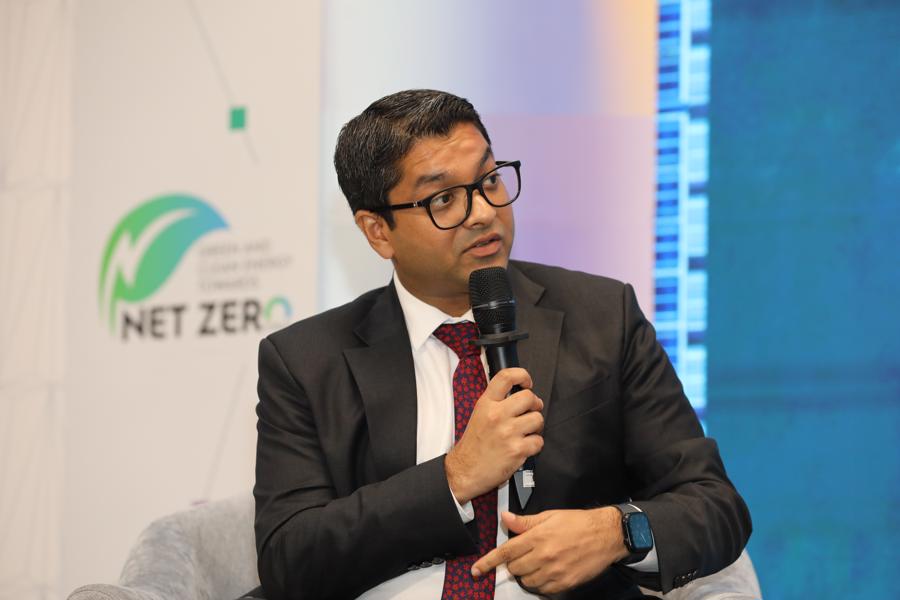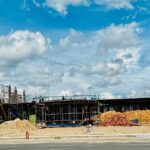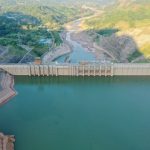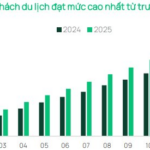Speaking at the Green Energy Forum, towards Net Zero, with the theme “Prospects for New Energy Development – International Experience and Effective Strategies for Vietnam,” Mr. Stuart Livesey, Executive Committee member and Co-Chairman of the Green Development Subcommittee of the European Chamber of Commerce in Vietnam (EuroCham), noted that Vietnam has made notable strides in its energy transition efforts, albeit still in the early stages.
REASSURING INVESTORS
According to Mr. Livesey, renewable energy accounts for a significant market share in Vietnam’s power generation capacity. Important regulations to promote the development of renewable energy are also starting to be passed.
Echoing the sentiments of the EuroCham representative, Mr. Abhinav Goyal, Director of Project Capital and Infrastructure Advisory Services at PwC Vietnam, expressed his impression with Vietnam’s efforts to increase renewable power capacity in a short period.
“In just five years, from 2017 to 2022, Vietnam’s renewable power capacity surged from 500 MW to 21,000 MW. The pace of growth in installed renewable capacity is among the fastest in the region and globally,” emphasized Mr. Goyal.
The PwC Vietnam leader also stated that regulations already passed and those in the pipeline, such as the Direct Power Purchase Agreement (DPPA) and the Electricity Law, will have a significant impact on Vietnam’s progress towards achieving its Nationally Determined Contribution (NDC) targets for 2022.

While commending the government’s efforts to promote a sustainable energy transition, Mr. Stuart Livesey stated that the policies adopted so far have not yet instilled a sense of reassurance among foreign businesses.
In other sectors such as industry and manufacturing, investors clearly understand the regulations and know how much profit their investments will yield. However, in the energy sector in Vietnam, there are still unclear factors that make FDI enterprises hesitant to invest.
“Vietnam needs to bring certainty to the domestic energy market and convince FDI enterprises that this is a safe, transparent, and tightly controlled investment environment,” Mr. Livesey recommended.
Mr. Livesey also added that the renewable energy market has a lot of potential that Vietnam can tap into, as many foreign businesses want to invest but require that the electricity they use comes from renewable sources.
“This requirement is not only ethically right but also what the shareholders and management of these businesses want. Without a consistent supply of renewable energy, FDI enterprises will have to look elsewhere,” he warned.
MAXIMIZING INTERNATIONAL MECHANISMS
To boost the development of the domestic renewable energy market, the representative of the foreign business association proposed that Vietnam take advantage of international financial mechanisms, including the Just Energy Transition Partnership (JETP).
This mechanism allows Vietnam to access $15.5 billion in financing over 3-5 years, comprising public and private funds, to address urgent needs and catalyze a just energy transition. Most of this funding will be allocated as loans, with the remainder as grants.
According to Mr. Livesey, Vietnam should not worry about its public debt situation when receiving funds through the JETP mechanism, as its debt ratio is still relatively low compared to other countries, and it can manage additional borrowing.
Additionally, the EuroCham representative pointed out that many countries are willing to take on short-term debt to facilitate more considerable long-term investments.
“If managed properly and efficiently, Vietnam will create positive economic effects in the long run,” emphasized Mr. Livesey. He also noted that the loans should be utilized for strategic projects, such as grid upgrades, improving energy efficiency, or enhancing logistics systems at warehouses and ports. Using this funding for small-scale projects would not bring overall benefits to Vietnam.
Bình Dương seeks Lego Group for Lego Land expansion
The provincial leaders of Binh Duong are excited about the opportunity to develop a Lego Land project in the area, using the available clean land resources. They hope that the Lego Group will consider this proposal and invest in the project in the near future.
Sharp Decline in Consumption, Warning of Very Low Water Levels in Hydropower Reservoirs
The Ministry of Industry and Trade’s Electricity Regulatory Authority has announced that electricity consumption during the Lunar New Year holiday is significantly low nationwide. In light of the low water levels in the hydropower reservoirs in the northern region, coal-fired and renewable energy power plants have been maximally utilized.
















